
Topic on News
NLC President Ajaero Leaves Abuja Police Office After Brief Meeting on Allegations
The President of the Nigeria Labour Congress has departed the police office in Abuja after spending a little over an hour with officials.
Last week, the police had summoned Ajaero to the IRT headquarters for questioning on August 20 at 10 a.m. regarding allegations of terrorism financing, cybercrime, subversion, criminal conspiracy, and treasonable felony.
Although Ajaero was unable to attend on the specified date, he committed to responding to the invitation today.
He was accompanied by Femi Falana, SAN, Marshal Abubakar, Deji Adeyanju, and other senior officials of the NLC.
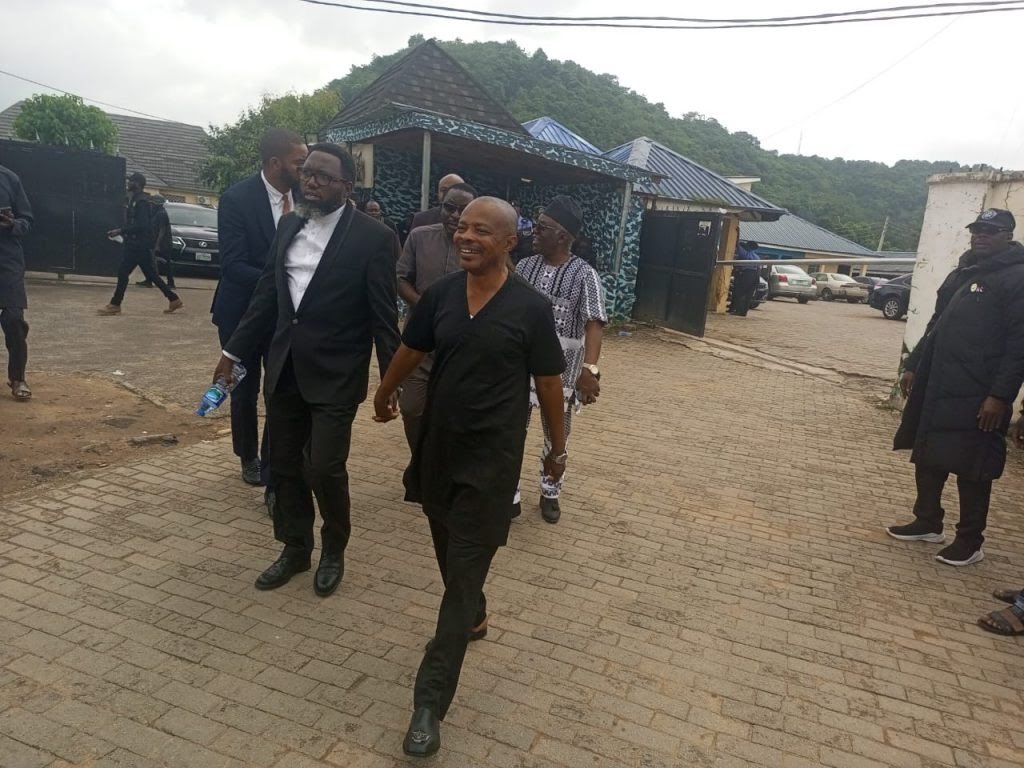
NCC Sets September 2024 Deadline for Full SIM-NIN Linkage Compliance
The Nigerian Communications Commission (NCC) has instructed all Mobile Network Operators (MNOs) to finalize the required verification and linkage of SIM cards to National Identity Numbers (NINs) by September 14, 2024.
This directive was announced in a statement issued by Mr. Reuben Muoka, Director of Public Affairs at the NCC, on Wednesday.
According to the statement, the directive is intended to ensure full adherence to the NIN-SIM linkage policy.
The NCC expressed satisfaction with the significant progress made in the Federal Government's 2020 initiative to link all Subscriber Identification Modules (SIMs) to NINs.
To date, over 153 million SIMs have been successfully linked to their NINs, demonstrating an impressive 96 percent compliance rate, up from 69.7 percent in January 2024.
"As we approach the final stage of this crucial process, the NCC urges continued cooperation from all Nigerians to achieve 100 percent compliance.
"The complete linkage of all SIM cards to NINs is vital for bolstering trust and security within our digital economy.
"Verifying all mobile users under this policy enhances confidence in digital transactions, mitigates the risk of fraud and cybercrime, and encourages greater participation in e-commerce, digital banking, and mobile money services," the statement added.
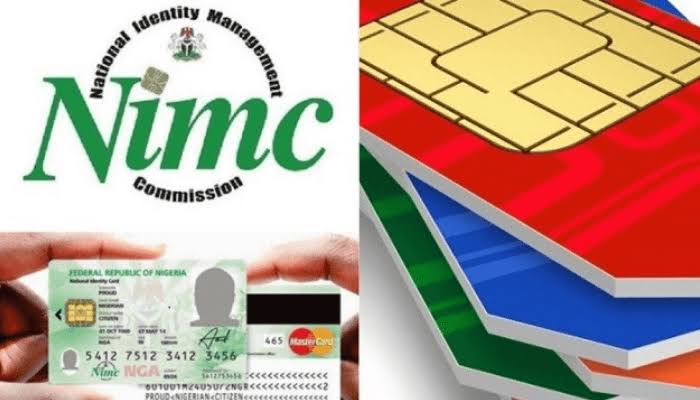
NLC President Joe Ajaero Faces Police Summons on Allegations
The President of the Nigeria Labour Congress (NLC), Joe Ajaero, is scheduled to appear at the Force Headquarters today in response to a Police summon related to allegations of criminal conspiracy, terrorism financing, treasonable felony, subversion, and cybercrime. This summons comes 11 days after being initially invited by the Intelligence Response Team (IRT) of the Police.
Ajaero will be accompanied by leaders of industrial unions affiliated with the NLC, as well as workers, civil society allies, and legal representatives to the Police headquarters.
The NLC has also instructed state councils across the country to mobilize for a peaceful procession to state police commands and hold prayer sessions in support of their President and the organized labor movement amidst current challenges.
In a show of solidarity, the Nigeria Union of Journalists (NUJ) has directed its Federal Capital Territory (FCT) chapter to mobilize journalists in Abuja to accompany Ajaero to the Force Headquarters.
Meanwhile, the Trade Union Congress (TUC) in the United Kingdom has urged the British government to intervene and urge the Nigerian government to stop the violent repression and intimidation of trade unions.
Previously, the Police had issued an invitation to the NLC President on August 19 to appear for questioning the following day regarding the mentioned allegations. Human rights activist and lawyer for the NLC, Femi Falana, SAN, explained the reasons for Ajaero not appearing on the scheduled date.
In a circular issued by the NLC General Secretary, Emmanuel Ugboaja, affiliates and state councils were called upon to mobilize members in Abuja and other locations to express solidarity with Comrade Joe Ajaero in light of the Police summons.
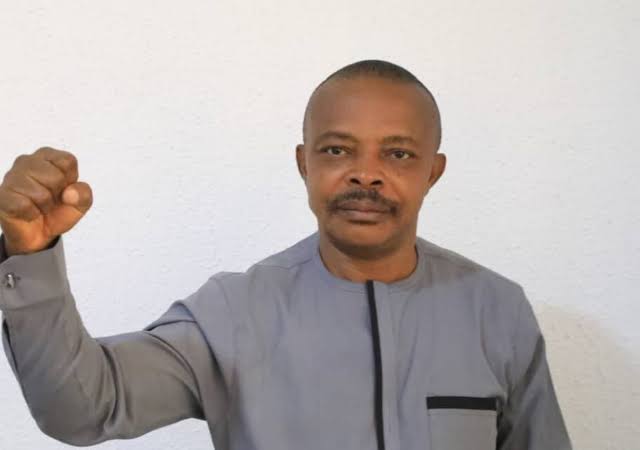
President Tinubu to Visit China in September for Strategic Economic and Bilateral Talks
President Bola Tinubu is set to visit the People's Republic of China in early September.
The visit aims to bolster economic cooperation and attract investments to Nigeria, marking a strategic effort to strengthen bilateral relations and explore key economic opportunities.
During a briefing at the State House in Abuja on Tuesday, Special Adviser to the President on Media and Publicity, Ajuri Ngelale, emphasized the significance of the upcoming trip.
Ngelale announced that the President plans to visit major Chinese companies, such as Huawei and the China Rail and Construction Corporation, to expedite the completion of the Ibadan-Abuja section of the Lagos-Kano rail project.
Additionally, Tinubu will meet with CEOs of 10 leading Chinese corporations, which collectively manage over $3 trillion in assets across various sectors including ICT, oil and gas, aluminum production, seaport development, finance, and satellite technology.
The meeting will also provide an opportunity for the two leaders to discuss broader issues of mutual interest, including economic partnerships, security at national, regional, and international levels, and other global challenges.
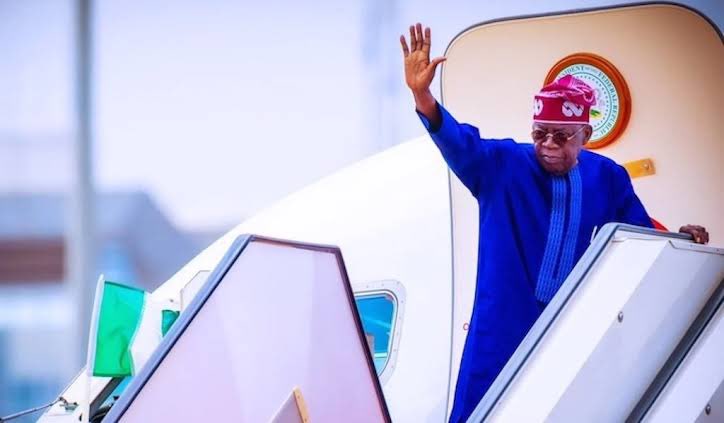
Government Warns Against Price Gouging as Independent Marketers Hike Petrol Prices to N1,000/Litre
Numerous filling stations run by independent oil marketers have now set the price of Premium Motor Spirit (PMS), commonly known as petrol, between N900 and N1,000 per liter. These stations appear unconcerned with the pricing at Nigerian National Petroleum Company (NNPC) outlets, where petrol is sold between N568 and N617 per liter, leading to long queues at NNPC stations.
As public concerns grow over the high prices charged by independent marketers, the Federal Government, through the Nigerian Midstream and Downstream Petroleum Regulatory Authority (NMDPRA), has pledged to shut down any filling stations found selling PMS at excessive prices. The government emphasized that it is not in the interest of Nigerians for marketers to exploit the situation.
Independent marketers argue that they have been purchasing petrol from private depot owners for as much as N850 per liter, which they claim justifies the high pump prices. However, George Ene-Ita, the spokesperson for NMDPRA, disputed this, stating that the price reports from the agency's officials at the depots do not support the marketers' claims.
Ene-Ita warned that any filling stations caught selling petrol at inflated prices would face closure. He emphasized that the NNPC, which supplies the product, sets the ex-depot prices, and there is no justification for pump prices to exceed N650 per liter.
The NMDPRA spokesperson also cautioned marketers against profiteering, stressing that the agency would not tolerate actions that harm consumers. Meanwhile, findings indicate that marketers are profiting significantly from the ongoing fuel crisis, which has yet to be resolved.
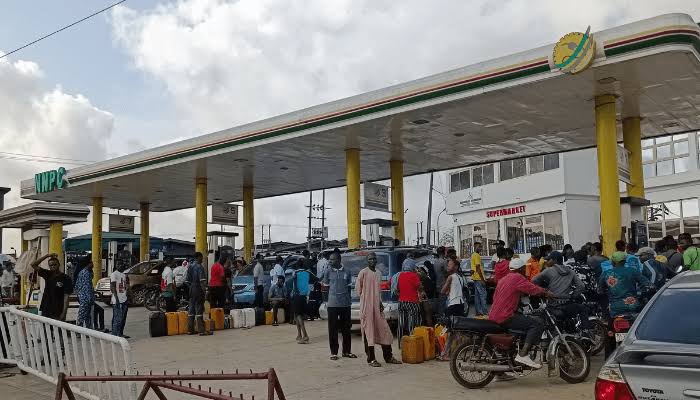
President Tinubu Appoints New Directors-General for NIA and DSS
President Bola Tinubu has approved the appointments of new heads for the National Intelligence Agency (NIA) and the Department of State Services (DSS).
Ambassador Mohammed Mohammed has been named the Director-General of the NIA, and Mr. Adeola Oluwatosin Ajayi is now the Director-General of the DSS.
Ajuri Ngelale, the Special Adviser to the President on Media and Publicity, announced these appointments in a statement issued on Monday in Abuja.
The statement noted that these appointments were made following the resignation of the former leaders of both agencies.
Ambassador Mohammed, the new NIA Director-General, has had a distinguished career in foreign service since joining the NIA in 1995. He has held various positions, leading to his promotion to director and eventually his appointment as the head of Nigeria’s mission in Libya.
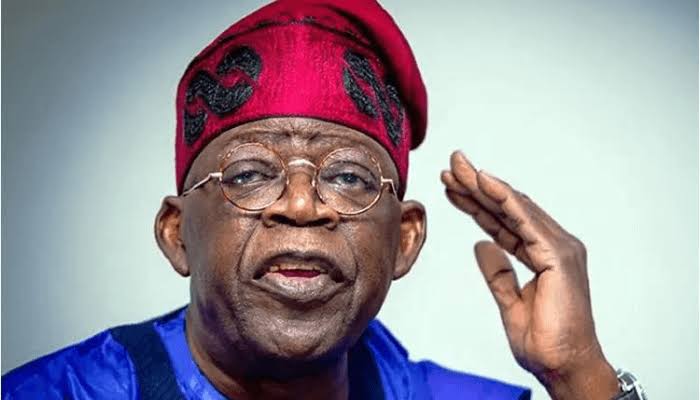
Telegram CEO Pavel Durov Arrested by French Authorities at Paris Airport
Telegram CEO Pavel Durov has been arrested by French authorities at an airport near Paris.
Durov was reportedly detained after his private jet landed at Le Bourget Airport, according to French media.
Officials stated that the 39-year-old was apprehended under a warrant related to issues involving the popular messaging app.
Russia's embassy in France is taking "immediate steps" to clarify the situation, as reported by Russia's TASS state news agency.
French television channel TF1 also confirmed that Durov had been traveling on his private jet.
Telegram is especially popular in Russia, Ukraine, and other former Soviet Union countries. The app was banned in Russia in 2018 following Durov's refusal to provide user data to the government, but the ban was lifted in 2021.
Telegram is now considered one of the leading social media platforms, alongside Facebook, YouTube, WhatsApp, Instagram, TikTok, and WeChat.
Durov founded Telegram in 2013 and left Russia in 2014 after resisting government pressure to close opposition groups on his VKontakte social network, which he subsequently sold.

Justice Kekere-Ekun sworn-in as CJN
President Bola Tinubu has appointed Justice Kudirat Kekere-Ekun as the 23rd Chief Justice of Nigeria, making her the second woman to hold this prestigious position.
She succeeds Justice Olukayode Ariwoola, who retired on August 22.
Justice Kekere-Ekun will serve as Acting CJN until the Nigerian Senate confirms her appointment during their scheduled resumption on September 17, 2024. This appointment aligns with President Tinubu's commitment to upholding the judiciary's independence and effectiveness.
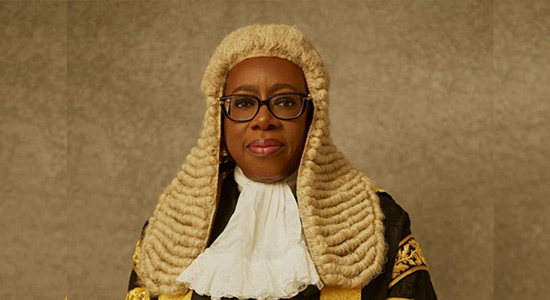
Nigeria limits electricity supplies to Benin Republic, Togo, Niger.
The Nigerian Electricity Regulatory Commission (NERC) has instructed the System Operator within the Transmission Company of Nigeria to limit electricity exports to neighboring countries such as Benin Republic, Niger, and Togo.
The electricity regulator, Nigerian Electricity Regulatory Commission (NERC) ordered a department within the Transmission Company of Nigeria, the System Operator (SO), to cap power supply to the three neigbhouring customers to six per cent.
Currently, Nigeria provides electricity to several neighboring nations, including Benin Republic, Niger Republic, and Togo.
NERC’s order, published on Friday, was dated April 29, 2024, and effective from May 1, 2024, was jointly signed by the commission’s Chairman, Sanusi Garba, and Vice Chairman, Musiliu Oseni.
According to the document, the amount of power supplied to these neighboring countries must not exceed six percent of the total grid electricity at any given time.
NERC has raised concerns about inefficient grid dispatch practices that have affected Distribution Companies' ability to fulfill their Service Tariff commitments to end-users.
The commission noted that the current approach, which prioritizes international off-takers and eligible customers, has proven to be neither efficient nor fair.
NERC also highlighted that international and bilateral contracts with Generation Companies (Gencos) often do not meet industry standards. Many of these off-takers exploit their prioritization, exceeding their contracted levels during peak times without facing penalties.
As a temporary measure, NERC aims to direct the System Operator and Transmission Company of Nigeria (TCN) to implement Standard Operating Procedures to improve transparency and fairness in grid operations.
The order also requires the System Operator to impose interim caps on the capacity supplied to international customers over the next six months, in order to reduce the impact on domestic supply obligations of Gencos.
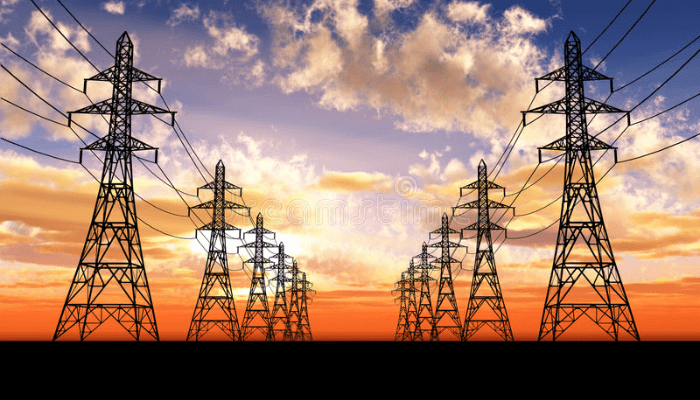
Nigeria Immigration Service Announces Increase in Passport Fees.
The Nigerian Federal Government has announced an increase in passport fees, as stated by DCI Kenneth Udo, the spokesperson for the Nigeria Immigration Service (NIS).
This adjustment, effective from September 1, 2024, aims to uphold the quality and standards of the Nigerian passport.
Under the new fee structure, a 32-page passport valid for five years, previously costing N35,000, will now be priced at N50,000. Likewise, a 64-page passport valid for ten years will increase from N70,000 to N100,000.
DCI Udo noted that fees for passports issued abroad will remain the same. He expressed regret for any inconvenience this may cause and reaffirmed the NIS’s dedication to maintaining transparency and high-quality service.
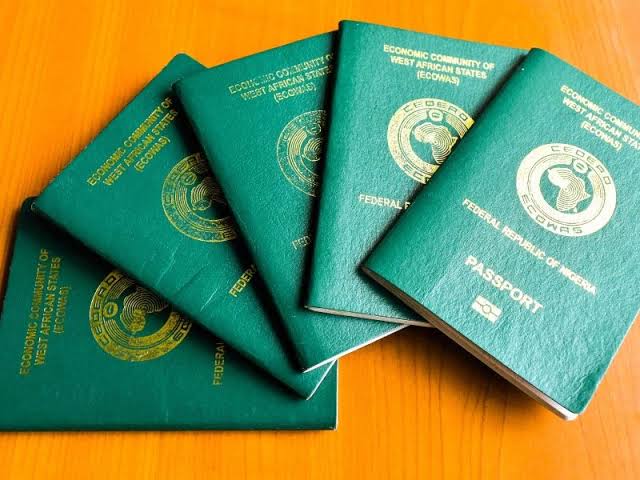
Naijaflut forum
39 posts 0 membersNaijaflut is your go-to forum for discussions on everything related to Nigerian entertainment, news, and more. Join the conversation today!

